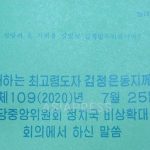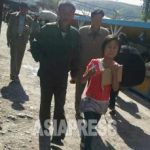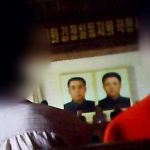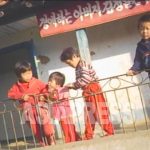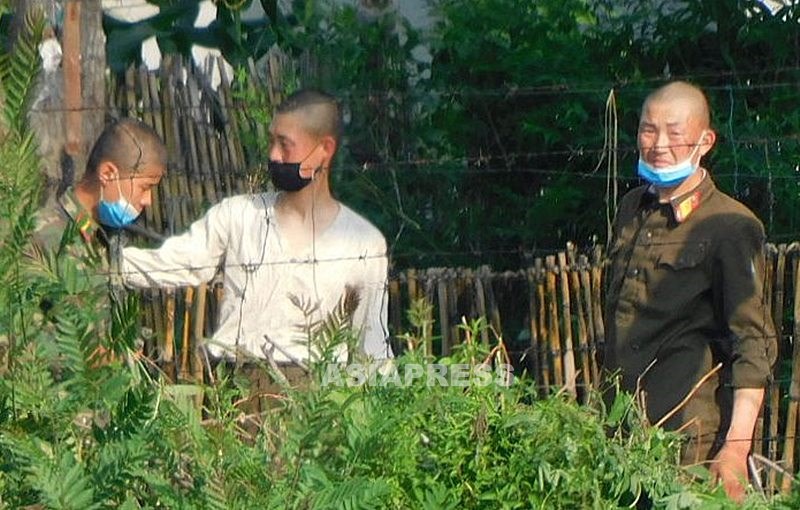
"In our country, instead of using disinfectants, we burn mugwort plants, and we can't even produce thermometers. So, the material and technical means of the quarantine system are zero."
This is what Kim Jong-un said at an expanded meeting of the Political Bureau of the Workers' Party Central Committee held on February 27, 2020. It was published in an internal document designated as "absolute secret."
In response to the COVID-19 outbreak that began in China, Kim Jong-un expressed a strong sense of crisis over his country's feeble health and sanitation.
In fact, until last summer, disinfection in regional cities was done simply by spraying saltwater. More than a year has passed since then. So, how is the domestic quarantine system now? In mid-August, ASIAPRESS asked our reporting partner in North Hamkyung Province (Kang Ji-won).
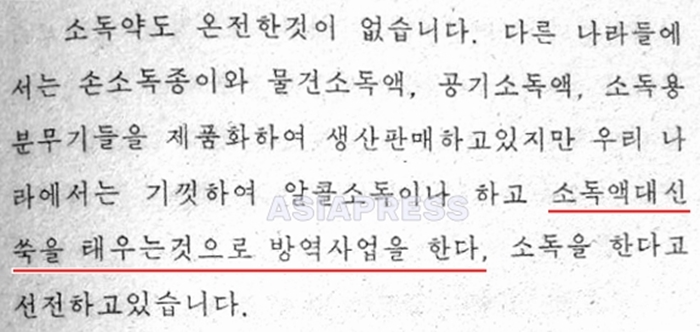
◆Disinfectants made in China are through
――Is there still a shortage of disinfectants and other products?
“Until last year, there were no disinfectants, but now I think there is a sufficient supply. Markets are being disinfected every day, and there is a crackdown on people not wearing masks. The quarantine station in North Hamkyung Province has received a lot of quarantine equipment made in China. These machines automatically spray disinfectant solutions like a mist and are installed at market entrances and in areas of institutions and companies where many people are coming and going.”
――The movement of people was strongly restricted due to the coronavirus quarantine, how is it now?
Movement restrictions are still severe. The border area with China is still closed after 8 pm. It is also difficult to travel across the road, but going to the next county is not impossible. However, there are so many checkpoints that many people have given up on travelling.
――Are these checkpoints for coronavirus prevention?
There were many coronavirus quarantine patrols at the borders of counties and villages. If you have a written verification, you can pass through, but they inspect all your luggage, claiming it is for quarantine purposes. They even put disinfectant on your luggage, and it's a lot of work. Once the inspection is over, a transit pass is issued, but you have to go through the same procedure again at the next outpost, so it takes a long time to travel.
――How about people who travel for business?
Very few people travel far for business because of the difficulties they face with their luggage. Instead, they travel to and from other areas to visit relatives. The rest of the travellers are wanderers. Kochebi (homeless children) and impoverished people roam around the outposts and head for rural areas. The crackdown on these vagrants is severe.
◆ Residents Believe in the “Garlic Effect”
――What are the residents' attitudes toward coronavirus?
The authorities advertise that “there is no coronavirus in our country,” and there are no rumours of recent outbreaks of infected people anywhere. The residents believe that if they eat garlic, they will not be infected with coronavirus, and they even have a campaign to eat one clove of garlic a day.
Another reporting partner reported that quarantine personnel were well supplied with protective clothing and masks. It is believed that a large amount of coronavirus prevention related supplies is being provided from China.
※ASIAPRESS contacts its reporting partners in North Korea through smuggled Chinese mobile phones.
- <Inside N. Korea> Electricity situation deteriorates further: “Even in the city centre, supply is limited to one or two hours a day.” Equipment and parts not coming in from China. (2021-08-16)
- <Inside N. Korea> Forced to provide flood support by saying “give voluntarily." Residents protest that “the government has no money and is forcing the people to bear the burden.” (2021-08-13)
- <Latest Photo Report> Scenes of North Korea Captured by a Super-telephoto Lens (1) The Disappeared Residents. The strictly guarded border is full of soldiers. [ISHIMARU Jiro] (2021-08-10)
- <Inside N. Korea>Domestic Currency Appreciates by 22% as Chinese Yuan and U.S. Dollar Mysteriously Plunge Again (2021-08-05)
- <Inside N. Korea> Cash-Strapped State Releases Prisoners and Reduces Sentences Due to Dwindling Supplies of Food (2021-08-02)


